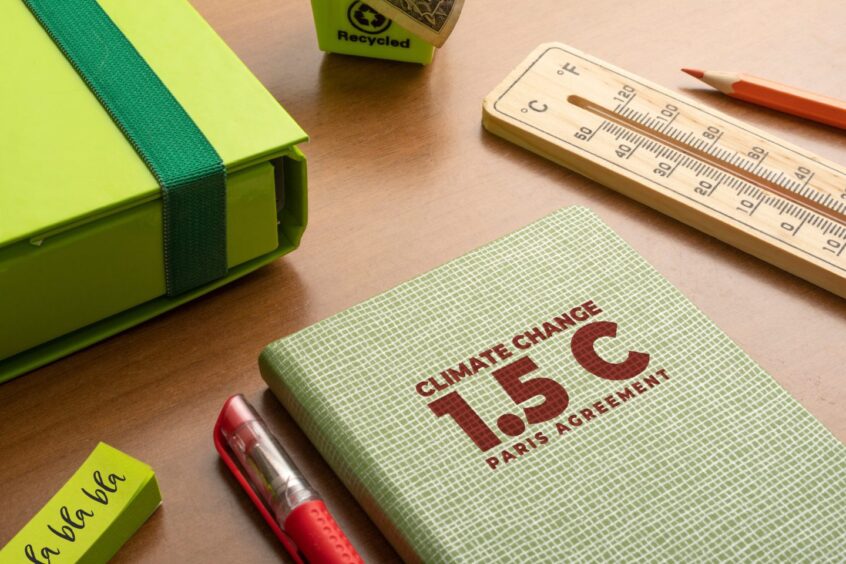
About ten years ago the writer and New Yorker magazine cartoonist Tom Toro published his now famous cartoon showing three children and an adult around a campfire in the middle of a desert with the caption “Yes, the planet got destroyed. But for a beautiful moment in time we created a lot of value for shareholders.”
Whilst funny in that it was a perfect example of cynicism it also reflected reality as it was then and indeed, pretty much as it still is today.
Shareholder value still dominates as the prime driver in the energy sector and the reduction in emissions remains an afterthought.
What makes me say that is that anyone who is like me and my colleagues at Energy Voice, watching the energy sector like hungry hawks, realises that we’re simply not moving fast enough to close down the burning of oil and gas and the emissions it creates.
According to the most recent report by the US National Oceanic and Atmospheric Administration, global average atmospheric carbon dioxide was 419.3 ppm (parts per million) in 2023 which is a new record.
The increase between 2022 and 2023 was 2.8 ppm which is the 12th year in a row where carbon dioxide in the atmosphere increased by over 2 ppm.
The result was that global temperatures also increased and 2023 was the warmest year since records began being 1.18°C above the 20th century average of 13.9°C.
Sea temperatures also rose, and a BBC analysis has found that the “world’s oceans have broken temperature records every single day over the past year”.
Part fuelled by climate change and part fuelled by the El Niño weather phenomenon the impact on sea life is huge as indeed is the impact on the ocean’s ability to act as a CO2 sink.
Warming seas are also impacting seabed methane hydrate deposits which are now beginning to release large quantities of that greenhouse gas.
What’s all this mean in practical terms? James Hansen, the former Nasa scientist who is credited for showing the world the dangers of climate change in the 1980s, believes that we are now inevitably going to break the intergovernmental agreement made in Paris in 2015, to limit the global temperature rise to 1.5C.
He said: “We are not moving into a 1.5C world, we are briefly passing through it in 2024. We will pass through the 2C world in the 2030s unless we take purposeful actions to affect the planet’s energy balance.”
Not everyone agrees with Hansen on the timing, but from what I can tell most agree that the 1.5C figure will be breached soon.
Kerry Emanuel, a climate and meteorological expert at the Massachusetts Institute of Technology says the recent severe heatwaves, fires, storms, and destructive flooding events are already being “supercharged” by global heating, even though it’s only around 1.2C above what it was a little more than a century ago.
He suggests: “Perhaps, once half the population of the planet has experienced at least one of these weather catastrophes, they will get their leaders to act.”
Certainly, the recent storms around Houston, Texas in the past month which killed at least seven people and caused power to be cut to over a third of a million should have woken a few people up to what’s going on and the danger of moving too slowly on decarbonisation.
After all, it’s been ten years since Tom Toro’s cartoon was published and we’ve really made little meaningful progress since then.
For example, it’s still not law that we can only build new houses that meet ‘Passivhaus’ standards in order to minimise the amount of energy we use. Whilst there are increasing numbers of electric vehicles being bought the rate of increase is nothing like enough and some reports suggest sales are stagnating.
Meanwhile, to provide choice and encourage adoption, Europe is rolling out hydrogen stations and so is China. Even Norway – the epicentre of the growth in battery vehicles – is beginning to install them.
You can buy a heat pump, but it’s increasingly unlikely you’ll be allowed to use hydrogen in the UK despite the highly successful trials in the Netherlands – which have proved it works, it is safe, people like it and importantly, it was relatively quick, cheap and easy to install.
Shell recently persuaded shareholders to cast their votes against a climate resolution filed by 27 leading investors which would have aligned the company’s strategy on decarbonisation with that of the Paris Agreement.
The company also announced plans to invest $40bn in oil and gas production between 2023 and 2035, compared with between $10bn and $15bn in ‘low carbon’ products. I find this truly astonishing.
Tom Toro was right; shareholders are controlling the agenda. This can’t be allowed to continue. At some point consumers will need to take back control. The people need to push companies like Shell and others into doing the right thing.
Equally though, an all-electric monopoly on energy is no more acceptable than a fossil fuel one. Shareholders’ interests mustn’t rule. The planet’s and the people’s interests must. It’s the only way we’ll get emissions down to as close to zero as possible.
Recommended for you
